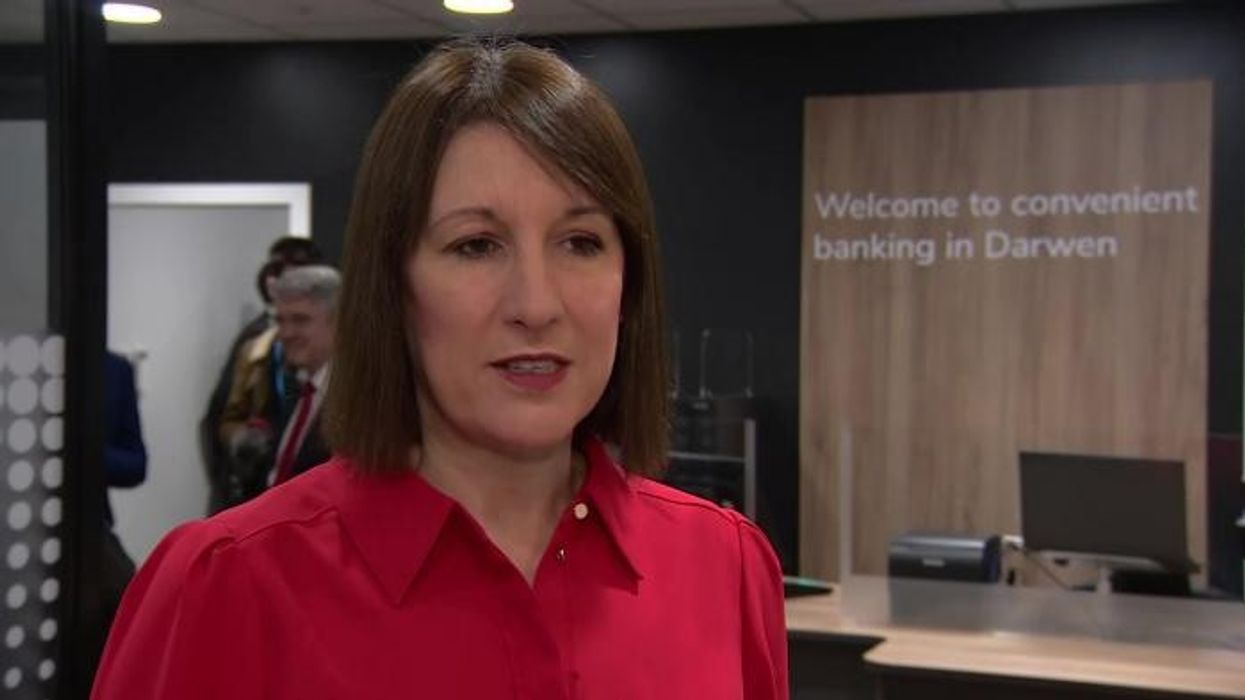Recession warning as UK economy SHRINKS in blow to Reeves's fiscal agenda

A recession is defined as happening when a country's economy experiences two quarters of negative growth consecutively
Don't Miss
Most Read
Latest
Britain's economy has unexpectedly contracted in a blow to Chancellor Rachel Reeves's fiscal agenda, according to the latest official Government statistics published this morning.
Figures from the Office for National Statistics (ONS) revealed the gross domestic product (GDP) shrank by 0.1 per cent in October despite Sir Keir Starmer pledging economic growth just days earlier.
In comparison, the ONS reported that the UK economy grew by 0.1 per cent in September. Prior to today's update, analysts forecast the economy would begin the fourth quarter of the fiscal year with 0.1 per cent growth.
Last week, the Labour leader revises his previous election manifesto goal of Britain having the highest economic growth in the G7 as just an "aim" of the Government.
With this contraction, Britain has edged closer to a potential recession which is defined as happening when a country experiences two quarters of consecutive negative growth.
Do you have a money story you’d like to share? Get in touch by emailing money@gbnews.uk.

The UK economy is shrinking in a blow tot eh Chancellor's agenda
|GETTY
Previously ONS figures reported recorded 0.1 per cent growth between July and September which was a notable slowdown on the 0.4 per cent increase between April and June.
Liz McKeown, the ONS’s director of economic statistics, said: "The economy contracted slightly in October, with services showing no growth overall and production and construction both falling.
“Oil and gas extraction, pubs and restaurants and retail all had weak months, partially offset by growth in telecoms, logistics, and legal firms. However, the economy still grew a little over the last three months as a whole."
In reaction to today's GDP figures, Reeves shared: "We are determined to deliver economic growth as higher growth means increased living standards for everyone, everywhere. This is what our Plan for Change is all about.
“While the figures this month are disappointing, we have put in place policies to deliver long-term economic growth.
“We have put public finances back on a stable footing, capped the rate of corporation tax at the lowest level in the G7, established a £70billion National Wealth Fund to drive growth in our towns and cities, launched a 10-year infrastructure strategy and are creating pension mega funds to boost investment in British businesses, infrastructure and clean energy."
Hailey Low, an associate economist National Institute of Economic and Social Research (NIESR), cited the Chancellor's Budget as being partially responsible for this reversal in growth.
She explained: "Month-on-month GDP fell by 0.1 per cent in October, largely driven by a fall in the production sector, particularly pharmaceutical products, machinery and equipment, and chemicals.
"More broadly, GDP grew by a marginal 0.1 per cent in the three months to October, reflecting a slower performance compared to the first half of the year.
"A weakening export climate amid rising global policy uncertainties and declining business confidence, exacerbated by the impact of recently announced budget measures, raises concerns about sustaining the growth momentum."
LATEST DEVELOPMENTS:

Experts have previously warned about a potential 'technical recession'
| GETTYDuring her Autumn Budget, Reeves confirmed a hike to National Insurance contribution rates for employers, as well as the removal of inheritance tax (IHT) relief.
This has been met with significant backlash from the business community which has claimed the Chancellor's tax rises will push up prices in the months ahead.
Mel Stride, Shadow Chancellor of the Exchequer said: "It is no wonder businesses are sounding the alarm. This fall in growth shows the stark impact of the Chancellor's decisions and continually talking down the economy.
"Labour were left the fastest growing economy in the G7 but because of their decisions growth is now under serious pressure. The impact will be felt by families through higher taxes, fewer jobs, higher prices and higher interest rates."











